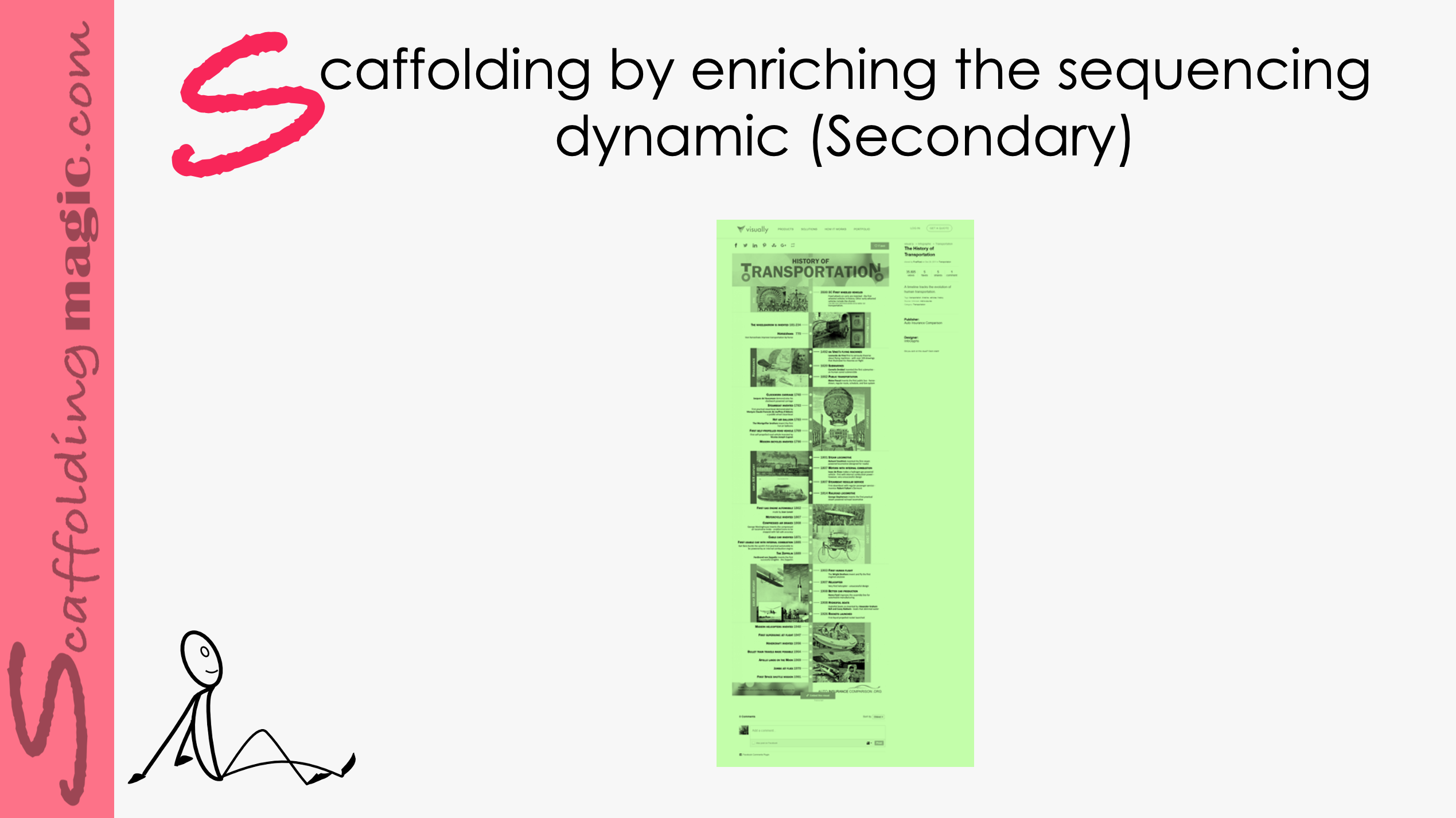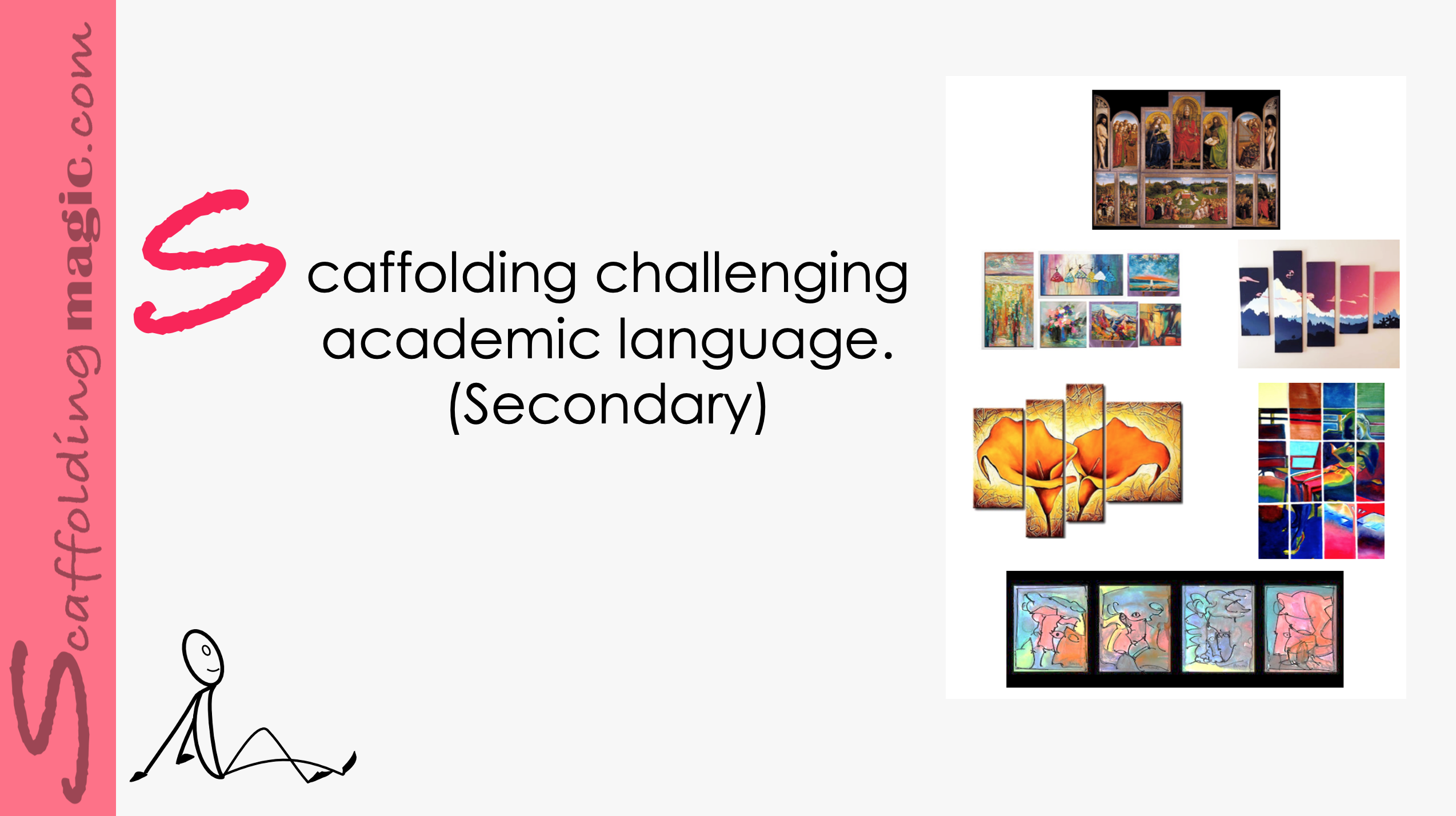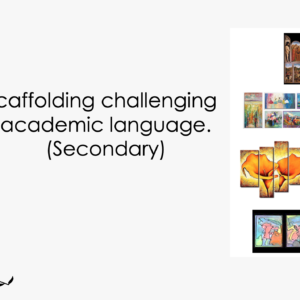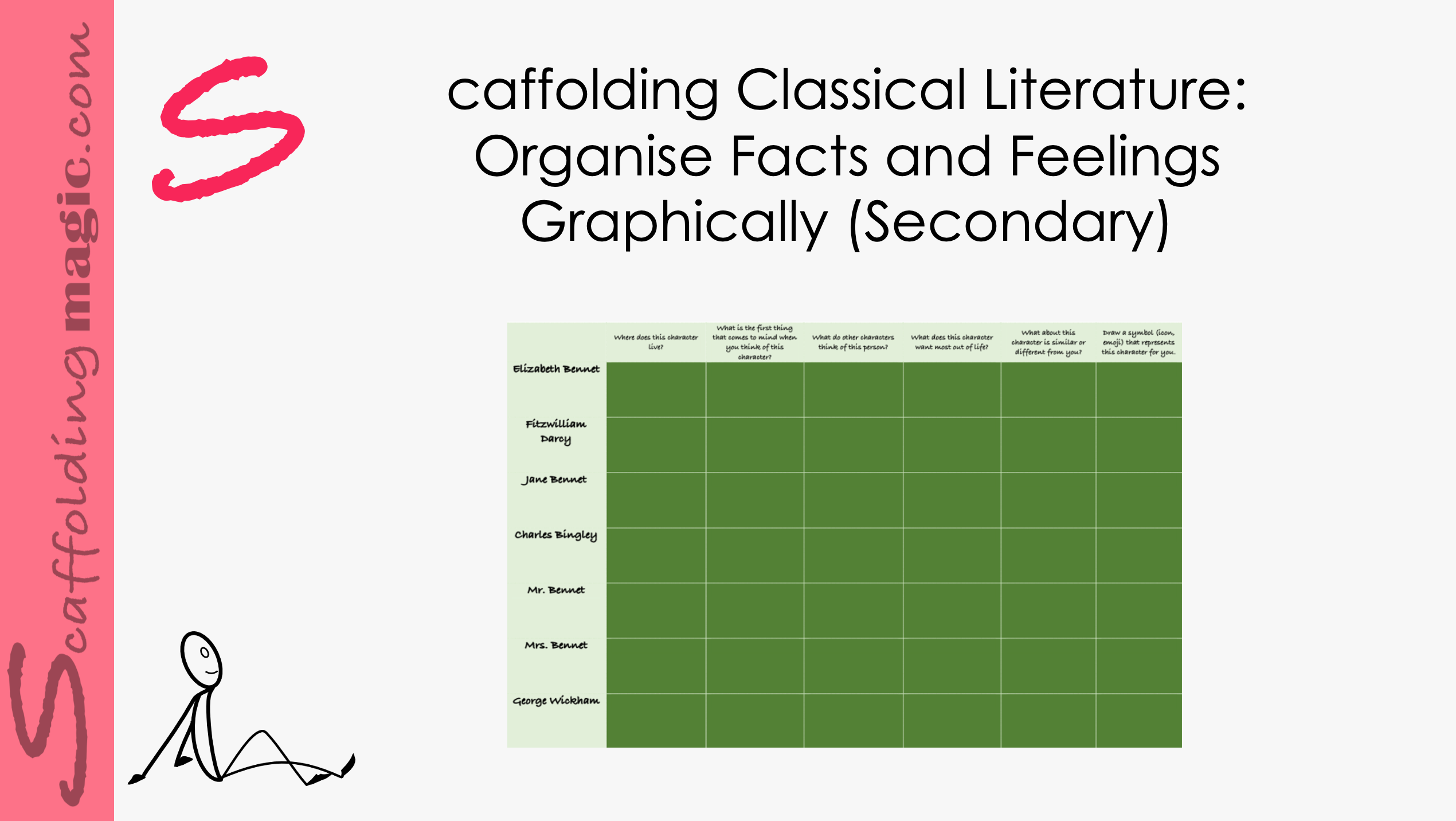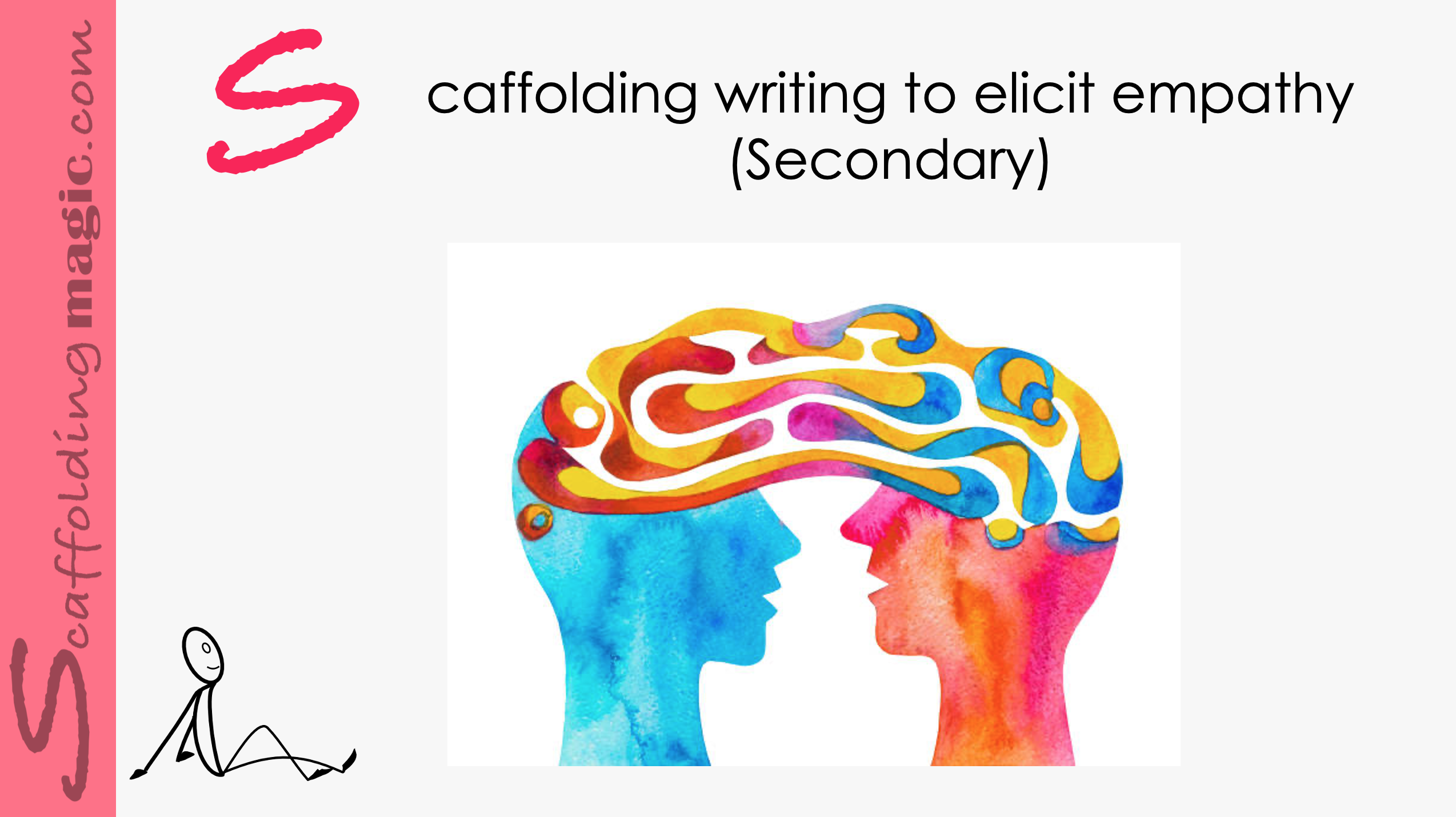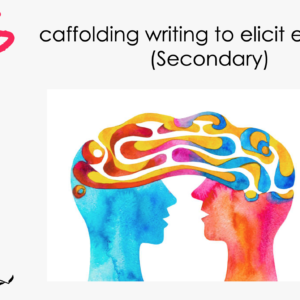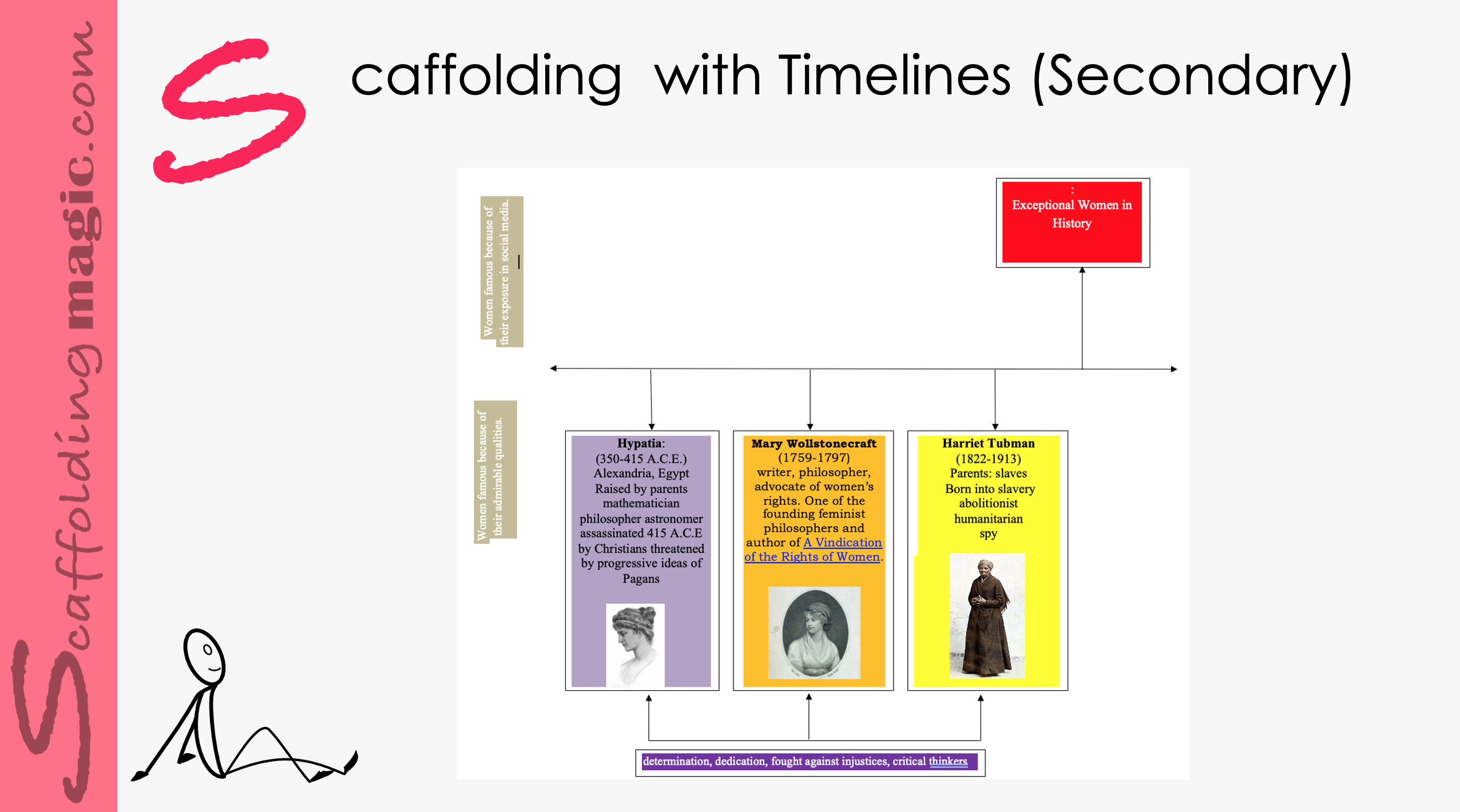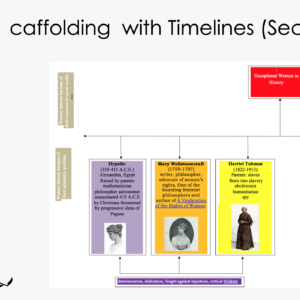Sequencing is a concept that needs to be repeated throughout the education process. We need to intentionally give our students the opportunities to be able to recognise and express sequences, and we need to provide the phrases they can use to clarify the ordering of events. It might be motivating to know that studies show that students are able to recall information more accurately if they´ve been schooled in sequencing.
Scaffolding by Enriching the Sequencing Dynamic (Secondary)
$5.00
Sequencing is a concept that needs to be repeated throughout the education process. We need to intentionally give our students the opportunities to be able to recognise and express sequences, and we need to provide the phrases they can use to clarify the ordering of events. It might be motivating to know that studies show that students are able to recall information more accurately if they’ve been schooled in sequencing.
Related products
-
Secondary ScaffoldsQuick View
Scaffolding Challenging Terms and Academic Language
$5.00 Add to cartRated 0 out of 5 -
Secondary ScaffoldsQuick View
Scaffolding Activity for Classic Literature 4: Organise Facts and Feelings Graphically
$5.00 Add to cartRated 0 out of 5 -
Secondary ScaffoldsQuick View
Scaffolding Writing to Elicit Empathy (Secondary)
$5.00 Add to cartRated 0 out of 5 - Quick View
Scaffolding Challenging Terms and Academic Language
Developing new academic language can be challenging for students in any language. If the terms or vocabulary are intrinsic to a successful interaction of the task, we need to make a bit of extra effort to give our students support so they feel more confident about their understanding and usage of the language. Scaffolding techniques can help students bridge gaps so that they can engage in challenging units with more ease.
This scaffold integrates images and linguistics giving students support in different learning styles. They learn the parameters of a term experientially, using vocabulary that is provided, discerning differences in images and paying close attention to details in the information given. Critical thinking, multiple possibilities for recognising truths, and verbalisation will engage your students in a powerful collaborative activity towards new knowledge.
Developing new academic language can be challenging for students in any language. If the terms or vocabulary are intrinsic to a successful interaction of the task, we need to make a bit of extra effort to give our students support so they feel more confident about their understanding and usage of the language. Scaffolding techniques can help students bridge gaps so that they can engage in challenging units with more ease.
This scaffold integrates images and linguistics giving students support in different learning styles. They learn the parameters of a term experientially, using vocabulary that is provided, discerning differences in images and paying close attention to details in the information given. Critical thinking, multiple possibilities for recognising truths, and verbalisation will engage your students in a powerful collaborative activity towards new knowledge.
Scaffolding Activity for Classic Literature 4: Organise Facts and Feelings Graphically
Here is a scaffold that will help your students keep track of the many characters in the story. Aside from the facts and family trees which can help enormously in following the plot, the graph encourages the students to pay attention to personalities and actions so they can make connections to them and people in their own lives – a key in engaging our students.
Here is a scaffold that will help your students keep track of the many characters in the story. Aside from the facts and family trees which can help enormously in following the plot, the graph encourages the students to pay attention to personalities and actions so they can make connections to them and people in their own lives – a key in engaging our students.
Scaffolding Writing to Elicit Empathy (Secondary)
Writing is one of the four cornerstone skills of every inclusive educational curriculum. It helps us form our thoughts into coherent verses and communicate over distance and time. It is a skill usually approached as a way of appeasing bands for standardised exams, but, in fact, is the perfect tool to foster the development and expression of empathy.
Writing is one of the four cornerstone skills of every inclusive educational curriculum. It helps us form our thoughts into coherent verses and communicate over distance and time. It is a skill usually approached as a way of appeasing bands for standardised exams, but, in fact, is the perfect tool to foster the development and expression of empathy.
Scaffolding with Timelines (Secondary)
We can create timelines – or use ones that are offered in the Student Books – as effective tools our students can use to categorise new knowledge through different learning styles, thus encouraging the information to pass from short-term to long-term memory. **
Timelines are used when there is a definitive focus on the concept being studied. Using them, we create a particular question our students need to answer or some situation or event that they need to understand; we can also, of course, use a queries from their Student Books. Cooperative learning is recommended because, if a challenge arises in which one student is weak on linguistics while another is weak on visual clues, they can work together to transfer their respective weakness into strengths. Previously unsuccessful students can then become successful in making sense of, and will acquire a feeling of control over, the subject matter.
We can create timelines – or use ones that are offered in the Student Books – as effective tools our students can use to categorise new knowledge through different learning styles, thus encouraging the information to pass from short-term to long-term memory. **
Timelines are used when there is a definitive focus on the concept being studied. Using them, we create a particular question our students need to answer or some situation or event that they need to understand; we can also, of course, use a queries from their Student Books. Cooperative learning is recommended because, if a challenge arises in which one student is weak on linguistics while another is weak on visual clues, they can work together to transfer their respective weakness into strengths. Previously unsuccessful students can then become successful in making sense of, and will acquire a feeling of control over, the subject matter.

